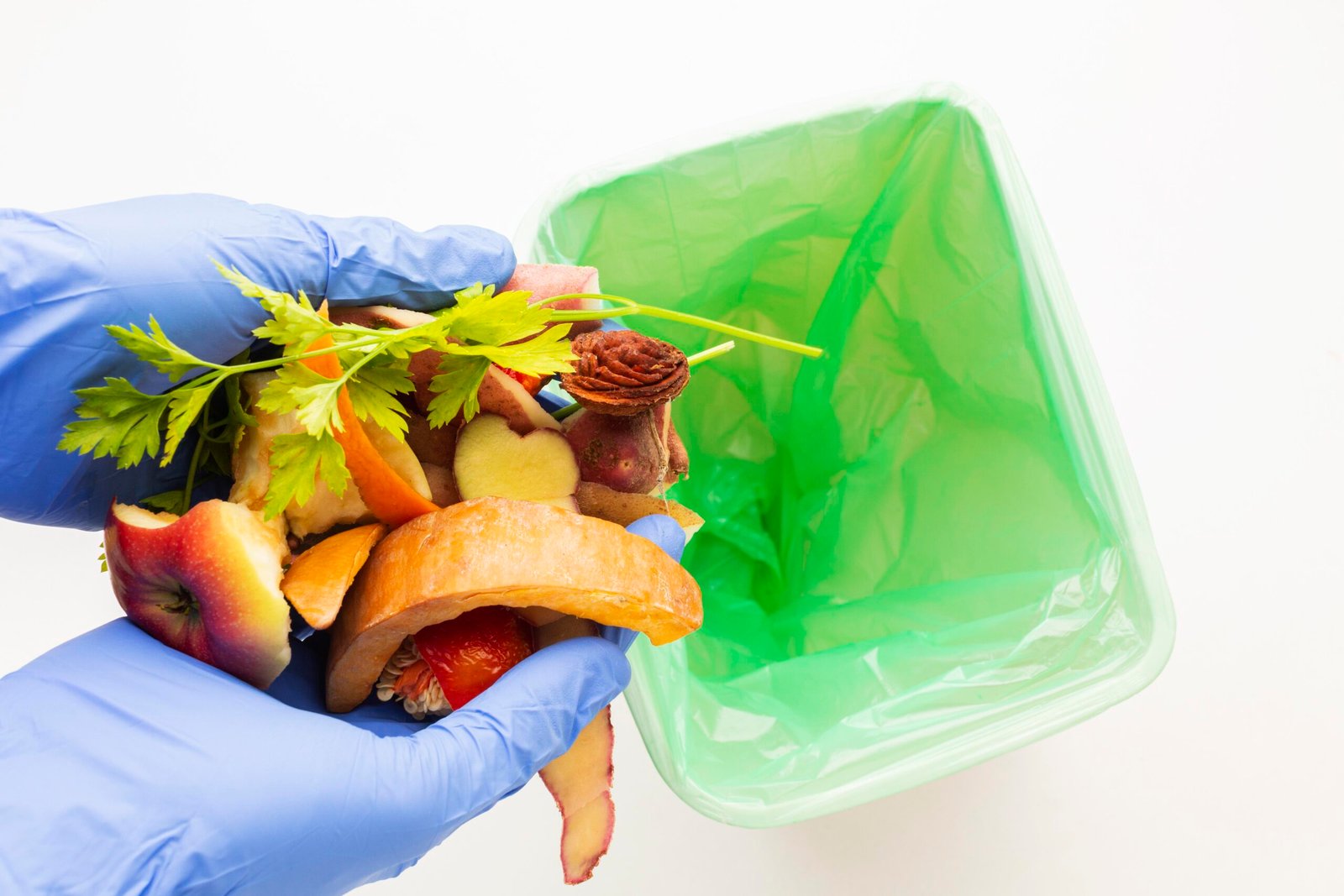If you’ve ever stood in the supermarket aisle staring at rows of garbage bags, you might have noticed labels like “biodegradable” or “compostable” and wondered, “What’s the real difference?” With sustainability becoming a bigger part of our daily lives, choosing the right garbage bags is more than just picking a color or size—it’s about making a choice that actually helps the planet.
What Are Biodegradable Garbage Bags?
Biodegradable garbage bags are designed to break down over time with the help of natural processes. They are usually made from plant-based materials, starch blends, or specially modified plastics. Unlike traditional plastic bags, which can sit in landfills for hundreds of years, biodegradable bags start to decompose when exposed to microbes, heat, or sunlight.
Here’s the catch: “biodegradable” doesn’t always mean fast. Some bags take months or even years to fully disappear, depending on how and where you throw them away. But still, they are a step up from regular plastic bags that linger in the environment for centuries.
What Are Compostable Garbage Bags?
Compostable garbage bags take eco-friendliness a step further. These bags are made entirely from plant-based materials like cornstarch or sugarcane fiber. They are designed to break down into rich, organic compost within a few months in the right conditions. No toxic residue, no microplastics—just clean, nutrient-rich matter that can help your garden thrive.
Compostable garbage bags are perfect for organic waste like food scraps, garden clippings, and biodegradable packaging. If you’re serious about reducing landfill waste, compostable bags allow you to turn your trash into something genuinely useful.
Key Differences Between Biodegradable and Compostable Bags
While both options are greener than regular plastic, knowing the differences can help you make the right choice:
- Breakdown Speed: Biodegradable bags may take months or even years to decompose, while compostable bags typically break down in a few months under proper composting conditions.
- Residue: Biodegradable bags can sometimes leave behind microplastics, but compostable bags completely turn into organic matter.
- Best Use: Biodegradable garbage bags work for general household waste, including non-organic items. Compostable bags are ideal for food and garden waste.
- Certification: Compostable bags often carry certifications to guarantee they meet composting standards. Biodegradable bags may not always have such guarantees.
Choosing the Right Garbage Bag for Your Home or Business
So, which one should you go for? If you’re looking for something versatile that can handle all kinds of household waste, biodegradable garbage bags are a solid choice. They offer flexibility while still reducing your plastic footprint.
If you’re focused on food scraps, garden waste, or want to actively participate in composting, compostable garbage bags are the way to go. Pairing them with a compost bin at home or using them in industrial composting facilities can make a real difference.
Making Your Choice Count
Switching to biodegradable or compostable garbage bags is just the first step. How you dispose of them matters too. Tossing them in regular landfill bins may not give them the conditions they need to decompose properly. For the best results:
- Separate organic waste from general trash.
- Use compostable garbage bags in compost bins or industrial composting systems.
- Check for certifications on biodegradable bags to ensure they meet environmental standards.
Final Thoughts
Choosing between biodegradable and compostable garbage bags doesn’t have to be confusing. Both options are better than traditional plastic, but compostable bags offer the added benefit of turning waste into useful compost. Biodegradable bags are a good choice for mixed household waste but may not always fully eliminate plastic residue.
By picking the right bags for your waste type and disposing of them responsibly, you’re not just reducing trash—you’re taking a small but meaningful step toward a greener planet. After all, every bag counts when it comes to protecting our environment.
FAQs
1. Are compostable garbage bags better than biodegradable ones?
Yes. Compostable garbage bags are more sustainable because they fully break down into non-toxic materials, while biodegradable bags may leave behind microplastics.
2. Can I use compostable garbage bags in regular trash bins?
Yes, but they’re most effective when disposed of in composting facilities. If they end up in landfills, they may not decompose properly.
3. Do biodegradable garbage bags decompose in landfills?
Not always. Landfills often lack the oxygen, light, and moisture required for these bags to degrade efficiently.
4. Are compostable garbage bags safe for food waste?
Absolutely. They’re designed to handle organic waste like food scraps, making them perfect for kitchen bins.
5. Why are compostable garbage bags more expensive?
They’re made from plant-based materials and follow stricter standards, which makes them costlier than biodegradable or conventional options.


